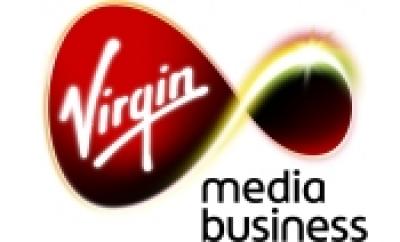Virgin Media To Challenge BT In Business Market

Virgin Media has unveiled plans to undercut BT, with a fibre optic broadband offering for small and medium business customers
ntl:Telewest Business has relaunched itself as Virgin Media Business in an attempt to capitalise on the recent growth of the Virgin Media brand and challenge BT’s dominant position in the British telecoms market.
Virgin plans to target small and medium-sized businesses (SMBs) and the public sector, providing personalised products and services, with an emphasis on expanding its Ethernet portfolio. The company also claims it will offer customers a dedicated account team to manage their fibre optic broadband needs.
“We have big ambitions for Virgin Media Business. Our main goal is to grow the company, but we can only do that if the market likes what it sees,” said Mark Heraghty, managing director of Virgin Media Business. “Over the last three years we’ve invested heavily to put the building blocks in place, which means we’re more than fit to wear the Virgin badge.

“In the last 12 months in particular, we’ve started to reap the rewards of that focussed investment. Projects such as working with the Hampshire and Isle of Wight Partnership (HIOW) to deliver a cutting-edge £90 million network that will transform public services in the region are testament to our ability to drive and underpin radical growth,” he added.
Virgin Media’s decision to boost its enterprise offering follows the news last month that BT plans to roll out super-fast Infinity broadband in up to four million homes by the end of 2010. Consumers will get up to 40Mbps downloads for £19.99, which BT says is “‘a saving of £7.47 per month” on Virgin’s XXL service.
However, Virgin dismissed BT’s comparison, claiming that it does not take into account the installation fee and contract offers. It also pointed out that BT’s service is only available to a few pilot exchanges, whereas Virgin’s fibre optic network already serves 12.5 million UK homes.
“There is a significant opportunity to leverage the full power of our fibre optic network in the business telecoms market,” said Neil Berkett, CEO of Virgin Media. “Virgin Media Business will take our strong customer-centric approach to a growing and under-served market in which there is a need for a compelling and distinctive alternative to BT.”
During the launch of Virgin Media Business, Berkett also voiced his support for the Conservative Party’s plans to provide super-fast broadband to the “majority” of homes by 2017. Earlier this month, shadow chancellor George Osborne said money from private investors would provide better cabling in towns and cities, while a portion of the BBC’s licence fee would be used to pay for coverage in less lucrative rural areas.
However, the Labour government accused the Tories of “playing catch-up” on broadband improvements, pointing out that the Tories had previously opposed Labour’s plans to roll out super-fast broadband across the country.
Chancellor Alistair Darling approved the government’s proposal for a 50p-per-month broadband tax in the Pre-Budget Report in December. Under the scheme, anyone with a fixed line phone would be obliged to pay the tax, which will be used to provide super-fast broadband to 90 percent of UK households by the end of 2017.
However, the Conservative Party claims that it would scrap the tax “as soon as possible” if it won power at the next election, warning that “heavy-handed state intervention” will deter private companies from investing money to upgrade the country’s Internet infrastructure.
BT announced earlier this week that it would open up its network of ducts and poles to competitors so that rival ISPs can lay their own fibre under the street or along telegraph poles to millions of homes in the United Kingdom. The move came after the Tory Party warned BT that it would force it to open up those channels to its competitors if won the election.